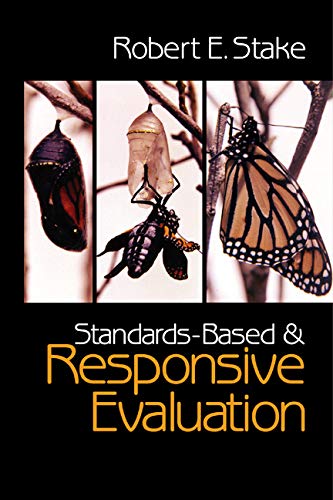Standards-Based and Responsive Evaluation
no information available
Written by a master writer and evaluator, this text explores the many conceptual choices an evaluator needs to make--from attention to stakeholders, to weighing ethical risks, to writing a useful report--when doing an evaluation. The book begins with the main strategic choices an evaluator needs to make between approaches: quantitatively,by explicating criteria, needs, standards, and performances, or, qualitatively, by studying the activity, aspirations, problems, and accomplishments of the participants and critical observers. Throughout the book, the author presents evaluation as a series of choices for the reader. He leads audiences to consider whether they would prefer to remain independent as evaluators or to join with a staff and/or stakeholders connected to the program; to aid in development formatively or to assess the whole program summatively; to invest minimally or largely in trying out and validating data gathering procedures; and how much to support professional associations, their standards, and ethics. After reading the book, students will have a better appreciation of evaluation as a process that needs to be custom-fit to the situation. ... Read more Read less











